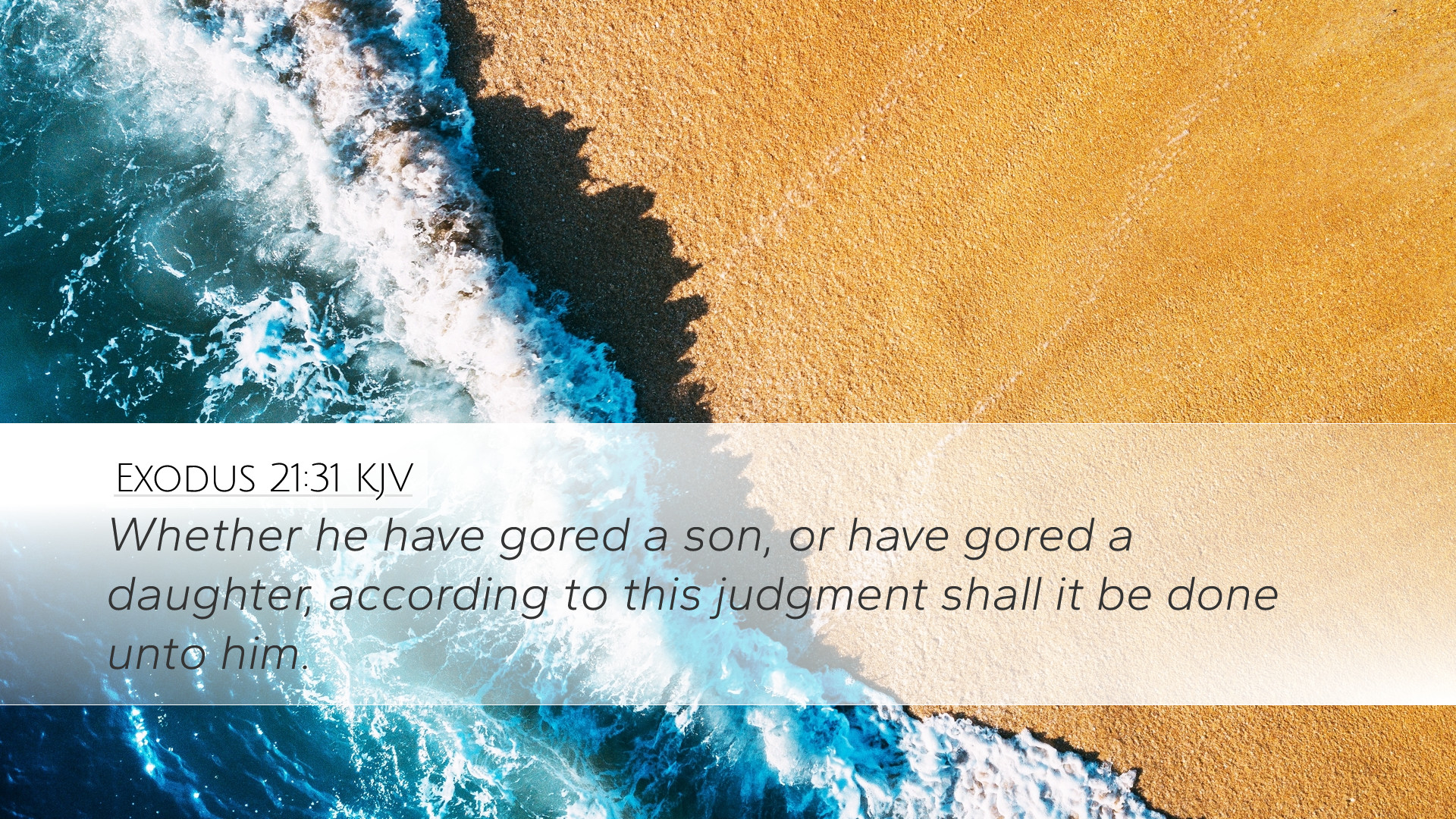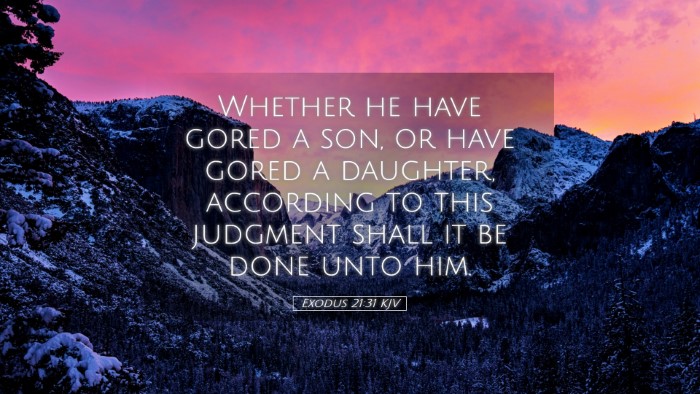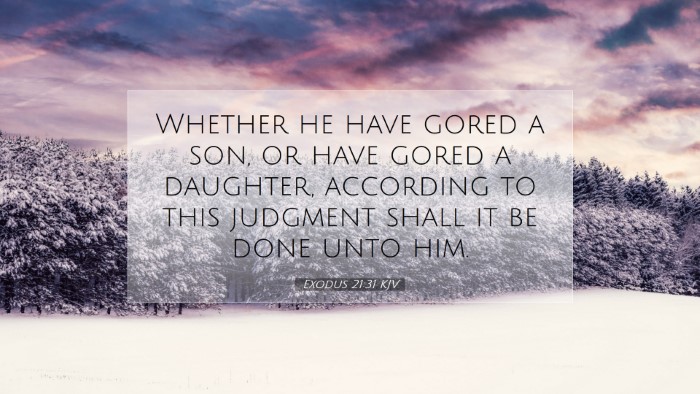Commentary on Exodus 21:31
Verse: "If it be known that the ox hath used to push in time past, and his owner hath not kept him in, but that he hath killed a man or a woman; the ox shall be stoned, and his owner also shall be put to death."
Introduction
This verse arises from the extensive legal framework found in Exodus 21, which addresses various civil and moral laws prescribed for the Israelites. Scholars examine this law in terms of both communal responsibility and personal accountability. The weight of the law demonstrates God's justice while emphasizing the implications of negligence and the sanctity of life.
Understanding the Context
Exodus 21 contains several laws that illustrate the principles of justice and responsibility among the people of Israel. The surrounding chapters set the tone for understanding God's covenantal relationship with His people, wherein obedience to divine ordinances is paramount. This particular law addresses the act of an ox goring a person and determines the liability of the owner based on previous knowledge of the animal's dangerous tendencies.
The Significance of the Law
- Personal Responsibility: The verse establishes that the owner of the ox is to bear consequence for neglecting to secure his hazardous animal. This implies a broader principle of social responsibility, where one's actions (or inactions) directly affect the wellbeing of others.
- Protection of Life: The severe punishment reflects the Bible's high value on human life. In the society of ancient Israel, the sanctity of life demanded communal and individual measures to prevent harm.
- Justice vs. Mercy: The command to stone the ox as well as punishing the owner illustrates a profound balance between justice and mercy. While the ox must face retribution for its actions, it is also a reflection of the owner's culpability, highlighting the need for due process in justice.
Insights from Notable Commentators
Matthew Henry
Matthew Henry emphasizes the law's moral implications, suggesting that it serves both as a deterrent and an admonition aimed at society's leaders. He notes that the legal system must create an environment where individuals act responsibly in their ownership and stewardship over animals and property.
Albert Barnes
Albert Barnes focuses on the rationale behind the prescribed punishment. He underscores that the owner's awareness of the animal's dangerous behavior implicates him in its actions. The connection between the owner's negligence and the resultant death invites reflection on broader themes of accountability in leadership and stewardship.
Adam Clarke
Adam Clarke offers a detailed analysis of the stipulations of the law, commenting on how this legal code reflects divine justice. Clarke points out that the judgment prescribed towards both the ox and its owner is a profound statement on nature's responsibility to humanity. If the owner failed to manage an inherently dangerous situation, then not only is he liable, but the ox, as an extension of that liability, is also condemned.
Theological Reflections
- The Character of God: This verse reveals God's commitment to justice and order within society. God's laws are imbued with a sense of moral clarity that seeks to uphold life and promote responsible guardianship over creation.
- Human Agency: The principle that one should had knowledge of potential dangers speaks to the importance of being vigilant in one's responsibilities. It prompts believers to actively engage in preventing harm.
- The Community's Role: This law isn't solely about the individual; it implicates the community’s role in ensuring safety and order. It underscores a collective responsibility towards safeguarding life, spurring leaders and individuals alike to act justly.
Conclusion
Exodus 21:31 provides critical insights into justice, accountability, and the sanctity of life within the biblical framework. Its implications reach far beyond the immediate context, offering moral lessons for personal conduct, societal structures, and theological considerations. In reflecting on this verse, pastors, students, theologians, and Bible scholars are encouraged to explore the depths of responsibility in their roles within the Church and the broader community.


